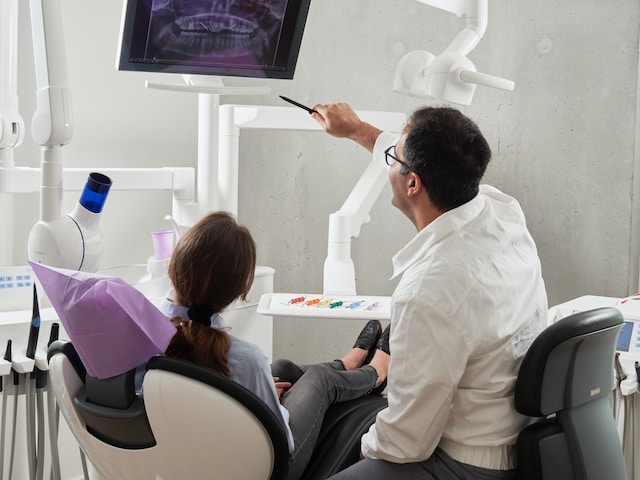All opinions are mine and mine alone.
5 Situations Where Your Dentist May Recommend a Tooth Extraction
Tooth extractions are performed for a variety of reasons. While a dentist will always try to save the natural teeth if possible, sometimes extraction is the best option for your oral health. The following are 5 common situations where a dentist may recommend pulling a tooth and details on why extraction is needed.

Severe Tooth Decay
If you have a tooth that is severely decayed, extraction may be necessary. Extensive decay that reaches the pulp (nerve) of the tooth can cause an abscess or infection. The nerves and blood vessels in the pulp run down through the root of each tooth. When decay exposes these tissues, bacteria can invade and multiply, spreading infection not only to the tooth itself but also to surrounding tissues.
Having a stupendous dentist in sandy utah remove the infected tooth prevents further progression of the infection and halts the spread of bacteria and inflammation to other areas of the mouth. Trying to repair a tooth with such deep decay usually fails over time. The decay is too extensive for a filling, crown, or other restoration to hold the tooth together properly. Extraction is often the most prudent option.
Fractured Teeth
Cracks or fractures in teeth that extend below the gumline often require extraction. The cracks allow bacteria to seep in and infect the pulp tissue. If the fracture splits the tooth all the way down into the root, the tooth cannot be saved.
The cracked tooth is at high risk for developing an abscess, which is a pocket of pus caused by bacterial infection. An abscess forms in the jawbone at the tip of the tooth root. It causes swelling and pain and can damage surrounding bone. Extracting the fractured tooth before an abscess occurs will prevent future infection as well as continued decay into the tooth’s root structure.
Impacted Wisdom Teeth
Wisdom teeth are the last molars to erupt, usually between the late teens and early 20s. When these teeth become impacted (stuck below the gums), they can cause multiple problems. Impaction happens when wisdom teeth are obstructed from fully emerging by other teeth crowding the jaw.
Partially emerged wisdom teeth create an opening for bacteria to enter around the tooth and cause pericoronitis (infection and swelling in the gum tissues). Food also gets trapped easily in this space, adding to infection risk. Impaction can also lead to tooth decay in adjacent molars, damage to nearby nerves, cyst formation, and tumors in some cases. To prevent these complications, extraction is often recommended to remove impacted wisdom teeth before problems develop.
Orthodontic Treatment
In some situations, teeth may need to be removed to allow room for the remaining teeth to be straightened with braces or other orthodontic appliances. By extracting a tooth or teeth to create needed space, the remaining teeth can be better aligned for improved cleaning between teeth and gum health. Removal of select permanent teeth is sometimes necessary to achieve proper alignment. The orthodontist will work with your dentist to determine if extractions will benefit your treatment plan.
Advanced Periodontal Disease
Periodontal or gum disease damages the tissues supporting the teeth, including the gums, periodontal ligament, and supporting jawbone. As gum disease advances, these tissues recede away from affected teeth. This makes teeth loose and unsteady. Pockets form between the gums and teeth, with bacteria eroding the bone like acid.
At this stage of advanced periodontal disease, extraction is often the most effective way to halt the disease’s progression and prevent it from spreading to the remaining teeth. Trying to treat gum disease once significant bone loss has occurred around a tooth is usually futile. The increased tooth mobility also makes cleaning around it more difficult.
While losing a tooth is often an unwelcome outcome, there are times when it is needed to restore and maintain oral health. If a dentist recommends pulling a tooth, you can be assured it is because the benefits outweigh the disadvantages. Trust the dentist to make the best choice for your individual situation. With today’s dental restorative options, you can regain your beautiful smile.



Speak Your Mind